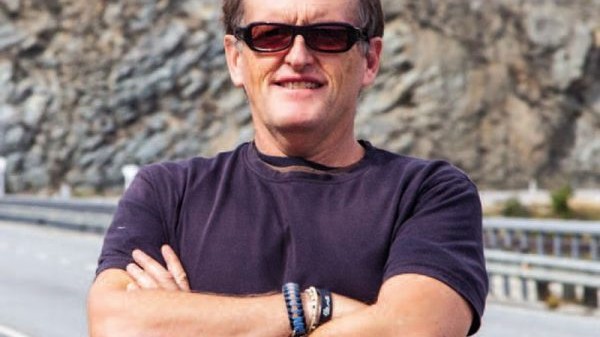Only action clears you of this deed

It’s been a fascinating last half to the year. I had the opportunity to attend the IAA Transportation show in Hanover, visit MAN’s test facility in Munich to drive their near-production BEV linehaul prototype, as well as attend the industry conferences here in New Zealand.
As we all know, the planet today has no physical dimension in terms of information carriage. Once, the oceans were as much a constraint to the passage of communication as they were freight. Now we hold Zoom meetings and transfer data across the hemispheres in real time. There is no longer a delay in understanding what’s happening at the cutting edge of progress in any field, wherever that might occur.
That means at this pivotal time in history we’re completely abreast of not just the main drivers underpinning the need for revolution in energy sourcing and global transport, but the issues, developments, and production timelines of the actual solutions. It means solutions can be more collaborative in nature with expertise in all corners of the globe contributing. Listening to experts speaking at local conferences, I was buoyed by the level of alignment, realisation, and acceptance on the part of local industry suppliers, and practitioners, as to what’s just over the horizon.
However, that leaves one crucial party in the mix that doesn’t seem to be responding with the same degree of urgency or innovation.
As seamless and instant as information might be, legislators and regulators the world over continue to display a recidivist pattern of progression paralysis and inertia. Harking back to the Covid outbreak and first global lockdowns in 2020, I recall the French raising the flag, urging other governments around the world not to shut off crucial amenities for truck drivers. Of course, what happened once the lock-down reached us and others, was all the crucial amenities were shut off for truck drivers.
One of the key takeaways from IAA was real concern on the part of the global OEM giants over the lack of progress on the part of legislators and regulators in setting the scene for an infrastructure to support a low- and zero-emissions vehicle fleet. Of course, history tells us that Europe’s a tough nut to crack when it comes to group kumbaya, but currently they’re certainly not to be singled out, with precious little urgency being demonstrated by any first-world jurisdiction.
Given our own history and talent in such fields, it wasn’t surprising to hear talk among many delegates at the IRTENZ conference around applying local engineering innovation to the soon-to-arrive low- and zero-emissions OEM offerings. However, I don’t think that’s where New Zealand stands to demonstrate truly lateral and innovative thinking – read, leadership.
There’s no question we stand to gain a lot from being early adopters of zero-emissions land-based transport. We have well-defined linehaul routes, plentiful green energy, and a single jurisdiction. Our real opportunity to demonstrate innovative and progressive advance lies not with the hardware, it resides in the legislative and regulatory ecosystem in which that hardware will operate. For future solutions to realise their full potential we need effective, timely, and innovative leadership that imbues a regulatory framework with the agility it needs at this time in history.
Infrastructure, VDAM, and energy all have to come under the microscope and evolve at a pace. That will allow an isolated economy with huge potential to both prosper and meet its emissions targets.
Yet, currently, all we have are underfunded roads, a certifying environment hopelessly behind the eight-ball, and a lethargic environment when it comes to change in the rules framework, one that borders on obtuse under the current administration.
Do we want to be complicit in the planet’s long-term wellbeing failing on the back of banal legislation, regulation and bureaucracy? Or do we want to be among the architects of the roadmap out of where we are?
As I’ve said before. If we believe the scientists, the journey the global community finds itself on currently is only about the destination.
All the best
Dave McCoid
Editorial Director
Read more
Keeping up with the times
0 Comments4 Minutes
In the weeds
1 Comment4 Minutes



